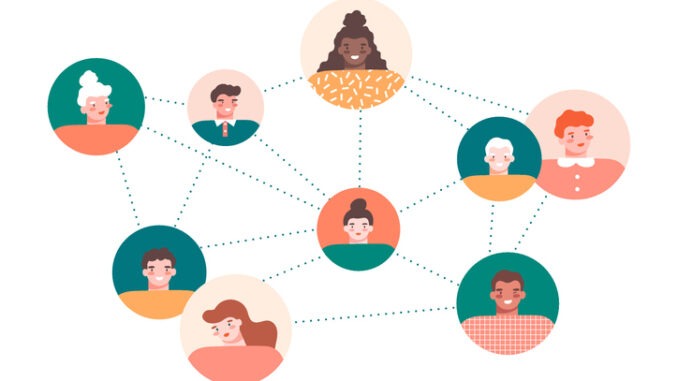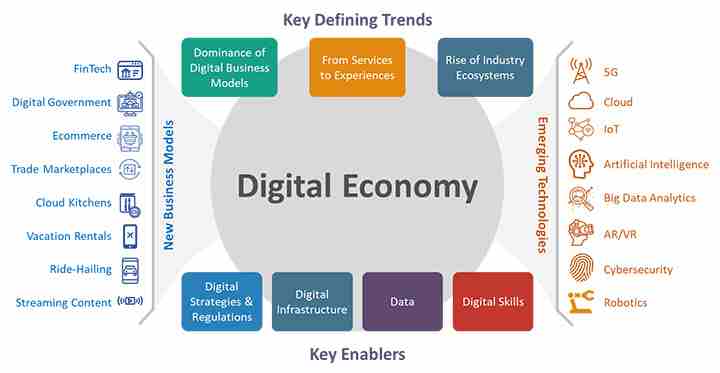How are different countries approaching the regulation of digital platforms? Each nation crafts its own digital destiny, shaping the web with unique rules and laws. The European Union blazes trails with GDPR, while China fortifies its cyber walls. Countries around the globe strive to find the sweet spot—fostering innovation, yet clipping the wings of tech giants when they fly too high. Here’s a deep dive into the tactics nations employ to tame the wilds of the internet, without stifling its potential.
Balancing Innovation and Control: The Varied Landscape of Digital Regulation
The European Union’s Trail: GDPR and the Digital Markets Act
Every country has its own way of keeping digital giants in check. Take the European Union (EU). They put out rules like the GDPR and the Digital Markets Act. Why do they do this? The EU works to protect its people’s data and stop big tech from being the boss of the market.
GDPR stands for General Data Protection Regulation. This big deal of a law looks out for your personal info online. It makes sure companies can’t just take your data without saying pretty please (and telling you how they’ll use it). Got questions about your data? The GDPR backs you up, giving you a say in the matter.
Now, what’s the Digital Markets Act (DMA)? Think of it like a ref in a soccer game. It stops tech titans from playing dirty to win the game. The DMA keeps the digital market fair for all businesses, big or small. This way, everyone gets a fair shake and you have more options to choose from.
The Chinese Approach: Stringent Cybersecurity and Data Controls
Switch gears to China, and it’s a whole different ball game. They play it close to the vest with their cybersecurity law. What’s the scoop? The Chinese government keeps a tight grip on all things internet. Their rules focus on controlling what’s said and shared online.
China’s cybersecurity law isn’t just about hacking and viruses. It’s more about watching over and controlling data flows in and out of China. The big idea? The government wants to be sure of one thing: they call the shots on their digital turf. They take their sovereignty (that’s a fancy word for an independent rule) super seriously, especially in cyberspace.
So, you see? From the EU’s big plans to China’s tight controls, countries are figuring out how best to keep the digital world in check. It’s not easy, but it’s all about balancing keeping the internet open and fresh with making sure it’s safe and fair. That’s the mission when it comes to digital regulation across our big, wide digital world.
Setting Global Standards or Creating Digital Islands?
Internet Governance and Cross-Border Data Restrictions
Around the world, leaders are drawing battle lines for digital control.
Each country tries to guard its own corner of the web. For example, Russia often talks about digital sovereignty. This means they want full control over the internet within their borders. The way Russia sets its own rules for the internet can seem like they are creating a separate digital island. They aim to filter what people can and can’t see online.
But why do countries want to control the web?
One main reason is to keep data safe. Countries worry that if data leaves their borders, it may not be protected well. Europe’s GDPR set strict rules for data protection. These rules have now influenced other countries. But some places like China have gone even further. They have very tight controls on data. This helps them keep a close eye on what’s happening online.
So, what kind of data restrictions are countries setting?
Countries put limits on where data can go. They make laws that say data created in the country should stay there. These rules can be tough for international companies. Sometimes they have to store data in many different places.
Next, let’s see how different places set their own rules.
Different Strokes for Different Folks: From India’s IT Rules to Brazil’s Data Protection Law
Not every country sees eye to eye on digital rules.
Take India and Brazil. They both have big digital spaces but they regulate them very differently. India’s 2021 IT rules focus on social media and online news. They want companies to be quick in taking down harmful content. They also want to know who first shared something online.
Why does India want to regulate social media and online news?
India wants to stop fake news and protect its citizens. They hope these rules will make the internet a safer place.
And what about Brazil?
Brazil cares a lot about personal data. Its General Data Protection Law is like Europe’s GDPR. It gives people more control over their own data. This means they can tell companies what they can and can’t do with their information.
What does Brazil’s law change for ordinary people?
People can now say if they don’t want their data shared. They can also check what data companies have on them.
Even though countries like India and Brazil are oceans apart, they face similar challenges. How they choose to deal with these can affect us all. From the digital taxes in Europe to the antitrust moves in the US, it’s a minefield. And in all this, tech companies need to tread carefully. They have to follow the rules in all the places they do business.
This is what makes global digital policy so complex. Countries want to guide their digital futures. They also want to keep their citizens safe online. But they must find a balance. The rules they make shouldn’t cut them off from the rest of the world. We all know one thing for sure, the internet doesn’t have borders, even if sometimes we wish it did.
The Silicon Valley Dilemma: Regulating Tech Giants and Marketplaces
Antitrust and the Big Tech: Scrutinizing Industry Practices
Big tech firms are in hot water. Countries want fair play in the digital yard. The US eyes antitrust laws to keep tech giants in check. They aim to stop a few firms from holding too much power.
In the European Union, the Digital Markets Act steps in. It’s a tough law that makes sure tech companies don’t hurt competition. Let’s say a company is too controlling. The EU can now say, “That’s not okay.”
E-Commerce and Privacy: Adapting to Diverse Online Marketplace Regulations
Diverse rules shape online shopping from place to place. E-Commerce regulations differ widely. What’s cool in one country might be a no-go in another. This means online shops must be very clever. They must understand and follow each country’s rules.
Take privacy laws, for example. Europe’s GDPR sets the bar. It says personal info must stay safe and private. Online platforms have to make sure they follow this to the letter.
Now, cross the globe to China. Here, the cybersecurity law takes a strict stance. It tells companies how to handle data and protect their networks.
Social media rules also vary by country. Some countries restrict what people can post. Others focus on taking down fake news. They want users to be safe and truth to be told.
Regulating online marketplaces is no kid’s game. Each country has its own idea of what’s right. So, companies must stay sharp. They can’t play by just one set of rules.
Tech policy is a tough nut worldwide. It’s a mix of privacy, power, and fair play. Countries craft these rules to protect us, the users. They also want to make sure no tech titan gets too mighty.
In short, it’s about balance. Are firms free to grow and invent? Are users kept safe and info private? As you click around on your favorite sites, huge debates rage on how to keep this balance just right. It’s the tale of our digital times, finding the sweet spot. Keeping the online world creative, fun, and fair for all.
Envisioning the Future: Emerging Policies and Global Impacts
Building Safe Digital Neighborhoods: Content Moderation and Misinformation
Around the world, countries are building rules to create safe spaces online. They want to stop harmful stuff like lies and hate speech. But how? Each place does it differently. Let’s look at these rules, like a traveler hopping from one country to another.
Some countries are strict; others less so. China has tough laws. They watch online content closely. Social media companies must follow these rules or they face trouble. They can’t let bad content slip through. The EU takes a strong stand too. Its new Digital Markets Act sets firm ground rules. Companies must play fair and be open about what they do online.
In Africa, many countries are just starting to make social media rules. They focus on keeping their people safe from lies. They’re working out how to do this well. In the US, people are talking a lot about Section 230. It’s a law that protects online platforms. Changing it would make big waves. It could make platforms clean up their act more.
Brazil protects folks’ data with its General Data Protection Law. It’s like a shield, keeping people’s personal stuff safe. Over in Russia, there’s a law that’s all about keeping the internet under control within their borders. This can make it hard to share things across countries.
Canada’s approach is a bit unique. They’re not just jumping into strict rules. They’re taking their time, trying to find the best way forward. They want to keep the good parts of the internet open for all. And they’re looking closely at what works well in other places.
In Asia, South Korea’s laws are tough on online marketplaces. They’ve got to be fair to everyone. If not, they’ll have to answer to the law. Japan asks companies to tell users clearly about their rights. If a company hides things, it could get into big trouble.
Now, what about taxes? Large tech companies often pay less tax than they should. Countries worldwide are changing the game. They want these giants to pay their fair share. That includes places like the UK, which is also working on the Online Safety Bill. This will make sure people are safe online.
Everywhere, folks want to know they’re safe when they speak or shop online. That’s why these rules are coming up. They aim to stop people from getting hurt by lies or attacked with bad words.
So, the world of digital is like a big puzzle. Each country adds a piece, showing how they keep their corner of the internet safe and fair.
A Glimpse Ahead: AI Frameworks and International Data Standards
AI is like a clever robot that can learn and decide things. But it needs rules, just like kids in a playground. Countries are now thinking: how should we teach this robot? They’re making AI guidelines to avoid future messes.
These guidelines help everyone. They set standards, so all countries know how to act. The EU is leading here. It’s working on big plans to shape how AI is used across countries. They want AI to be safe, respect people’s rights, and be clear about how it works. Other places are joining in with their own ideas.
For data, international rules are key. Our info travels far and wide, beyond borders. It’s important for our safety and privacy. The GDPR from the EU helps a lot with this. It makes sure our data is kept safe when it goes on world trips. It’s a bit like a passport for our personal details.
Looking ahead, this mix of AI and data standards will shape our digital world. It will make sure the internet grows up safe and smart. And it’s all about working together. This way, we keep our digital neighborhoods clean and friendly for everyone.
In this post, we explored the tightrope walk between innovation and control. We saw the EU’s GDPR and its effects, and China’s tough cybersecurity laws. Different regions, like India and Brazil, each have their own take on internet rules.
We also looked at big tech’s challenges with antitrust issues and the complex world of e-commerce privacy. Lastly, we peeked into the future of digital policies and their global reach, from content moderation to AI regulation.
My final thought? It’s clear that a one-size-fits-all approach to digital regulation doesn’t work. Every country crafts its rules to fit its needs. Yet, this creates a patchwork of standards that tech companies must navigate. What matters most is creating a digital space that’s safe and fair for all. That’s the goal we should all aim for.
Q&A :
How are countries around the world regulating digital platforms?
Various countries are implementing a range of legislative and regulatory measures to govern digital platforms. The European Union has been proactive with regulations like the Digital Services Act and Digital Markets Act, focusing on content moderation, user rights, and competition. The United States is debating various antitrust and data privacy legislations, while countries like Australia and Canada are creating laws centered on data protection, content liability, and revenue sharing with traditional media.
What new policies are being considered for digital platform regulation?
Policymakers are considering several new policies aimed at digital platforms, which include stricter antitrust enforcement to prevent monopolistic behaviors, increased user data protection and privacy standards, measures to ensure transparency around algorithms and content moderation, and laws that could require platforms to compensate content creators fairly.
How is the United States addressing digital platform regulation?
In the United States, there’s ongoing debate and legislative proposals focused on antitrust laws to limit the power of big tech companies, such as breaking them up or prohibiting certain types of mergers and acquisitions. Additionally, there are proposals for enhanced data privacy laws, akin to the General Data Protection Regulation (GDPR) in Europe, and the potential modification of Section 230 of the Communications Decency Act, which currently provides broad immunity to platforms for the content posted by their users.
What impact will digital platform regulation have on users?
Digital platform regulation is intended to protect users by enforcing greater transparency, securing personal data, and ensuring a competitive market that fosters innovation and choice. Users may benefit from better privacy protections and content that is moderated more effectively, but could also experience changes in the user experience on their favorite platforms, as companies adapt to new regulations.
Are there any global standards or agreements for regulating digital platforms?
While there are currently no binding global standards for regulating digital platforms, international organizations like the G7, G20, and the OECD have been discussing frameworks to handle issues such as harmful digital content, antitrust, and taxation. The aim is to establish principles that member countries can adapt to their national legislation, leading to a more cooperative and consistent approach in regulating the digital economy.
